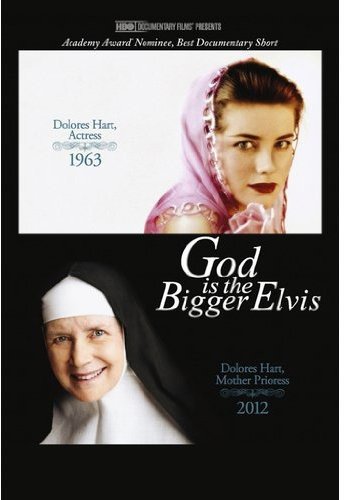
Stanislavsky once said, “There are no small parts, only small actors.” At least I think he was the one who said that. It may have been Jerry Maren.
Regardless, the same sentiment can apply to short films, especially when they’re as compelling as this year’s nominees in the category of Documentary Short. Four of the five films recognized by the Academy are playing in theaters around the country leading up to the Oscar telecast on Sunday February 26, and while they may be less than feature length, they all pack more than their share of emotional oomph.
But be warned: once the forgotten stepchild of Awards Season, the shorts have turned into a hot ticket for completists. The screening I attended Wednesday night at the IFC Center in downtown New York City was sold out, with latecomers sprawled out on the floor in front of me.
The four docs included in the theatrical program (now playing in more than 200 theaters, and available on some cable systems on-demand) all have one thing in common: they may make you weep. The woman sitting next to me at the screening used the closing credits of each film to break out a small package of Kleenex and dry her eyes in preparation for the next film, which also made her cry. Repeat.
But nowhere was the sound of sniffles more pronounced than in the final entry in the program, The Barber of Birmingham, Gail Dolgin and Robin Fryday’s elegy for 85-year-old Alabama barber and Civil Rights activist James Armstrong. Mr. Armstrong spends most of the film in his tiny, neighborhood barbershop regaling us with tales of his days as a “foot soldier” in the movement, often referring to the collage of historic newspaper clippings with which he has covered his walls.
The filmmakers intercut archival footage of the seminal events of the movement with Mr. Armstrong’s charming on-camera interviews, and the result is a first-hand account of history from a man who made that history, and lived to tell.
Listening to Mr. Armstrong talk about the election of Barack Obama reminds us of how far the country has come in the last half century, and how far we still have to go. And watching him walk haltingly along with other marchers on the anniversary of the Bloody Sunday march, waving the same American flag he first held a half decade earlier, is truly inspiring.
Of the four shorts in this program, The Barber of Birmingham is the one I wish was longer, and the one I would recommend you seek out.
That does not mean, however, that I think it will win the Oscar. The favorite for Academy accolades is Saving Face, a heart-breaking film from HBO Documentaries about women in Pakistan who have survived disfiguring acid attacks, and the plastic surgeon who attempts to rebuild their faces and their lives. During the film’s 40 harrowing minutes we meet a handful of young women who have fallen victim to vengeful husbands, complicit family members and uncaring courts.
As the film opens, Dr. Muhammad Jawad has returned to his native Pakistan after a lucrative career as a cosmetic surgeon in London. He meets Zakia, a 39-year-old woman from Barakahu who has lost half of her face – including her left eye – in an attack by her unapologetic husband. Like Dr. Jawad, filmmakers Daniel Junge and Sharmeen Obaid Chinoy refuse to look away from Zakia and the other victims, no matter how badly they have been disfigured. And in the end, small victories are achieved.
Saving Face is a difficult film to watch, but a necessary one. It premieres on HBO on March 8.
The Tsunami and the Cherry Blossom is the most cinematic of the four films in the program. Lucy Walker’s 39-minute short begins on March 11, 2011 as the 9.0 magnitude earthquake and subsequent tsunami hit Japan. The survivor’s eye view of an entire town, families, and lives being swallowed up by the angry waters is gripping, but the art in this film is the juxtaposition of horrendously tragic imagery with the joyful annual rebirth of the cherry blossoms. This is nature at its most fierce and most beautiful, and it inspires a hopefulness that is unfathomable in those who have suffered so greatly and lost so much.
The film is beautifully shot, and lyrically edited. Another high point is the score, by Moby, the electronic musician and DJ.
Incident in New Baghdad, is the most political of the documentary shorts, which leads me to believe that it doesn’t have a chance of winning in a an election year already overrun with partisam rhetortic. James Spione’s story of an Iraq War veteran and his efforts to come to terms with his experience includes some tough, anti-war language and a general condemnation of the American war-making machine. While I completely agree with the political sentiment, I found the film to be more akin to a good installment of Frontline than an Academy Award-worthy short.
God is the Bigger Elvis is the documentary short not included in the theatrically released program. Rebecca Cammisa and Julie Anderson’s profile of Hollywood starlet turned cloistered nun Dolores Hart premieres on HBO April 5, and you can read my detailed review of it here. Due to Hart’s planned attendance at the ceremony, God is the Bigger Elvis will likely get the most attention of the short documentaries. But it is the most incomplete and flawed film of an otherwise strong set of contenders.